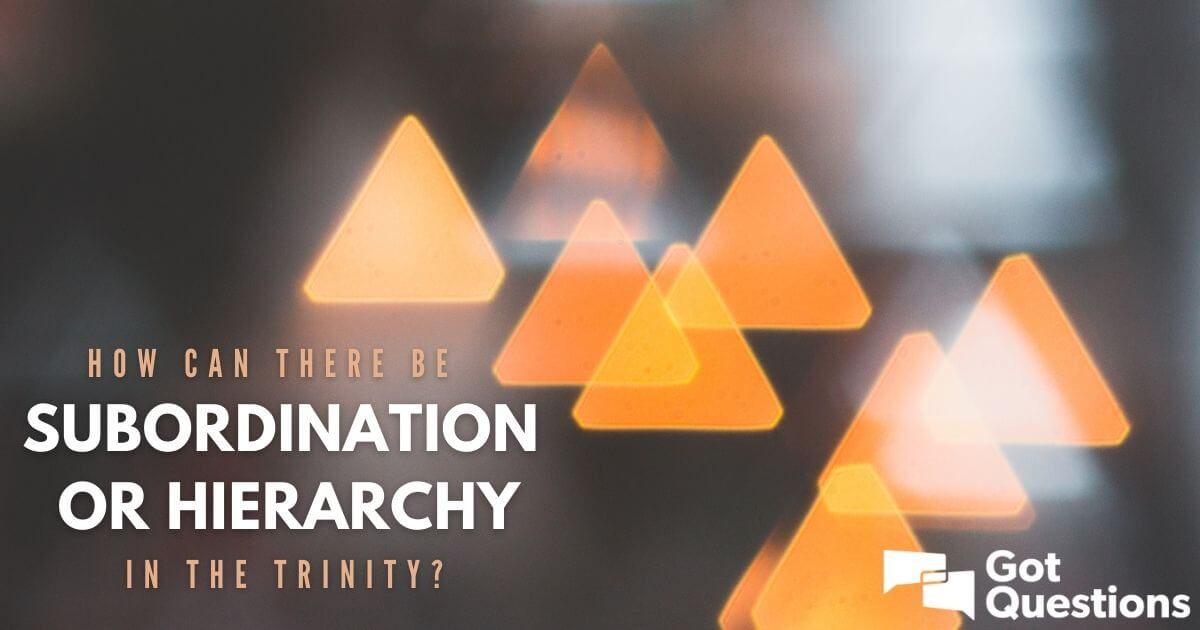B-A-C
Loyal
- Joined
- Dec 18, 2008
- Messages
- 11,273
The doctrine says they are coequal. Here's the doctrine codified in the Athanasian Creed.
Never heard of it. I've attended two Seminaries, one is the largest Pentecostal denomination in the world, the other is the largest denomination in the US.
Neither of them believes Jesus is equal to the Father in every way. There is a hierarchy in the trinity. The first five websites that pop up in Google on this subject confirm this.
Is there a hierarchy in the Trinity?
It seems that there is some form of hierarchy within the Trinity. For example, these passages seem to indicate that the Holy Spirit is subservient to the Father and Jesus: John 14:26 (NIV) But the

Is There Hierarchy In The Trinity? A Series On A Contemporary Evangelical Controversy
Is there hierarchy in the Trinity? Part 1 One of the many controversies among evangelical theologians and biblical scholars surrounds the question of the

The Trinity: A Hierarchy? - Holy Trinity
Read about The Trinity: A Hierarchy? - Holy Trinity. Grow in your understanding of Christianity and faith.

How can there be subordination / hierarchy in the Trinity? | GotQuestions.org
How can there be subordination in the Trinity? What is subordinationism? Is there hierarchy in the Trinity? If the Father, Son, and Spirit are equal, how can there be submission amongst the Trinity?
www.gotquestions.org
John 15:15; "No longer do I call you slaves, for the slave does not know what his master is doing; but I have called you friends, for all things that I have heard from My Father I have made known to you.
John 12:49; "For I did not speak on My own initiative, but the Father Himself who sent Me has given Me a commandment as to what to say and what to speak.
John 8:28; So Jesus said, "When you lift up the Son of Man, then you will know that I am He, and I do nothing on My own initiative, but I speak these things as the Father taught Me.